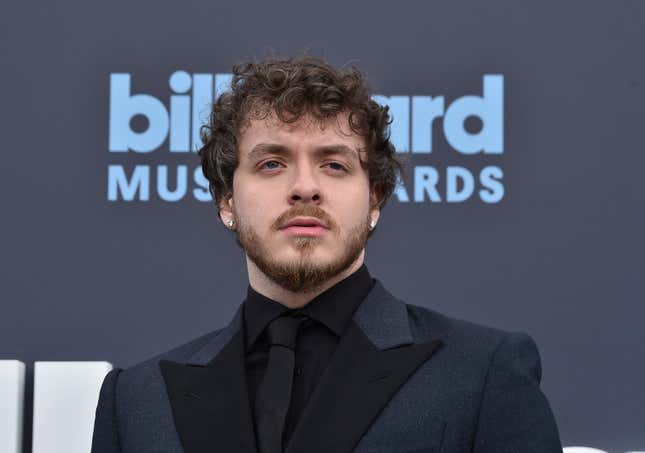
When it was revealed Wednesday that Jack Harlow was nominated for “Best Male Hip-Hop Artist” at the 2022 BET Awards and Lil Nas X received no nominations, social media called out the network’s hypocrisy. Nas himself addressed the controversy in a now-deleted series of tweets when asked by a follower why he deserves to be recognized.
He stated: “idk maybe 3 of the biggest songs of last year & a critically acclaimed album… i feel like that should’ve helped me a bit.” What’s more even infuriating about this ordeal is that it postures Jack Harlow as a representation of Black culture. Why are untalented white artists constantly lauded in rap?
One of Harlow’s biggest hits, “Industry Baby,” was Lil Nas X’s song that he jumped on as a guest. The fact that he is being rewarded for his unremarkable efforts with a nomination by an institution that celebrates and uplifts Black people is preposterous.
Harlow’s sophomore album, Come Home the Kids Miss You, was a vapid display of lackluster songwriting and well...rapping itself. It was also panned by critics. That didn’t stop Come Home from debuting at number three on the US Billboard 200. Apparently, talent isn’t necessary to be a successful white rapper: a profound interest in profiting off of Black art is.
The Beastie Boys copied the cadence and rhyme flows of Black artists in the 80s and used their whiteness as a vehicle to reach mainstream heights. Vanilla Ice slicked on an unfathomable amount of hair gel and pranced around onstage claiming he was honoring Black culture—and made millions while doing it.
At a point, white emcees were so elusive that VH1 made a reality series—2007's The White Rapper Show—to capitalize off of the innate spectacle. The most stark example of it is Macklemore & Ryan Lewis’ insipid 2012 album, The Heist. Not only did it win Best Rap Album at the 2014 Grammy Awards, its lead single, “Thrift Shop,” took home Best Rap Performance and Best Rap Song.
The duo beat out actual rappers like Kendrick Lamar, Jay-Z, Kanye West, J. Cole and Eminem. Even Macklemore, whose real name is Benjamin Haggerty, couldn’t deny this fact and sent that infamous text message to Lamar saying his group didn’t deserve to win.
White mediocrity—and its inherent safety—will always triumph over talent. It’s why Iggy Azalea thought it was ok to use her finest blaccent throughout her discography and why Action Bronson disparaged Ghostface Killah; Bronson’s vocal similarity to the legendary emcee is one the biggest reasons for his success.
It’s why Post Malone and Machine Gun Kelly can embark on lucrative careers capitalizing off of Black art, then pivot away from it when they’ve gotten what they want out of it. Back in 2018, the former stated during an interview with NewOnce:
“If you’re looking for lyrics, if you’re looking to cry, if you’re looking to think about life, don’t listen to hip-hop. Whenever I want to cry, whenever I want to sit down and have a nice cry, I’ll listen to some Bob Dylan.”
The most infuriating part of white mediocrity in hip hop is that Black people have already been relegated from numerous genres of music like country, pop and rock—even though we created all of them. Rap is one of the few spaces in music where our genius is recognized.
So the next time a white girl goes viral for reciting Lil’ Baby lyrics word for word, remember: America loves cosplaying Blackness since it means they can erase us from it.

